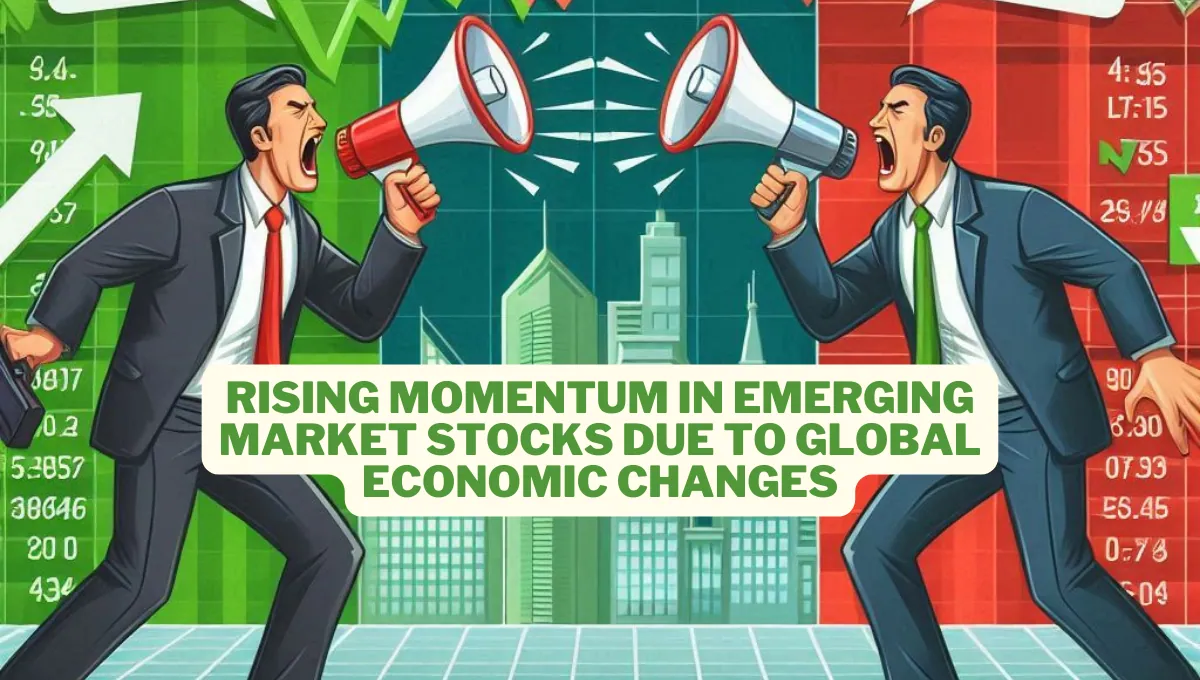Emerging market stocks experienced a positive shift, ticking up by 0.4% after three days in the red.
This recovery was driven by MSCI Emerging Markets Index gains, even as the currency markets remained relatively steady.
This upward movement reflects the dynamic nature of emerging markets, where economic, political, and monetary factors interplay to influence investor sentiment.
Investor Anxiety Over US Inflation Report and Federal Reserve Decision
Investors are currently on edge, awaiting critical economic indicators from the United States. The upcoming US consumer inflation report and the Federal Reserve’s policy decision are particularly pivotal.
Analysts at Monex Europe highlight that these events could potentially strengthen the US dollar further, adding another layer of complexity to the global economic landscape.
The anticipation of these reports is keeping investors cautious as they brace for potential shifts in market dynamics.
Ghana’s Debt Restructuring and IMF Deal
In a significant development, Ghana’s finance ministry has successfully negotiated a debt restructuring agreement with its Official Creditor Committee.
This agreement is a crucial step toward securing approval from the International Monetary Fund (IMF) for a $3 billion loan.
The immediate release of $360 million as part of this deal has already had a positive impact, boosting the Ghanaian cedi by 0.8%.
This financial support is expected to stabilize Ghana’s economy, providing much-needed liquidity and fostering investor confidence.
Pakistan’s Fiscal Year Budget and IMF Bailout
Pakistan is also making strides to stabilize its economy by drafting a budget for the fiscal year ending June 2025.
This budget is a prerequisite for securing a new bailout from the IMF. The proactive measures taken by the Pakistani government have positively influenced market sentiment, pushing the benchmark stock index up by 0.5%.
The prospect of an IMF bailout is seen as a lifeline for Pakistan’s struggling economy, promising to address fiscal imbalances and stimulate growth.
South Africa’s Rand Strengthens Amid Political Optimism
In South Africa, the rand has gained 0.2%, buoyed by optimistic talks surrounding the formation of a unity government.
This political development has injected a sense of stability and hope into the market, encouraging investors to remain engaged.
Political stability is a critical factor for economic growth, and the progress in South Africa’s political landscape is seen as a positive sign for future economic policies and reforms.
Eastern European Currencies React to Regional Developments
Eastern European markets have shown varied reactions to regional economic developments. The Hungarian forint rebounded by 0.4%, recovering from recent losses.
In Romania, a slower-than-expected inflation rate has raised hopes for future interest rate cuts, nudging the leu up by 0.1%.
These currency movements highlight how regional economic indicators can influence investor expectations and market behavior.
Mexico’s Peso Dips Despite Political Reassurances
In Mexico, the peso dipped by 0.3% despite reassurances from President-elect Claudia Sheinbaum regarding judicial reforms.
The political landscape in Mexico remains a key focus for investors, as policy changes can have significant implications for the economy.
The dip in the peso reflects underlying concerns about the potential economic impacts of the proposed reforms, despite the president-elect’s efforts to mitigate fears.
India and Nigeria’s Economic Maneuvers
India and Nigeria are making notable economic strides amidst their unique challenges.
In India, the central bank likely intervened in the non-deliverable forward (NDF) market to prevent the rupee from hitting record lows.
Such interventions are critical to maintaining currency stability and investor confidence. Meanwhile, in Nigeria, the president is advancing economic reforms aimed at revitalizing the economy.
These reforms are expected to address structural issues and promote sustainable growth, making Nigeria a focal point for emerging market investors.
Importance of Monitoring Regional Developments
Investors should keep a close eye on these regional developments, as they have the potential to impact both local and global investment landscapes.
The interconnectedness of global markets means that domestic economic shifts can have far-reaching effects.
For instance, Romania’s slower inflation rate hints at possible changes in monetary policy, which could set a precedent for other economies in the region.
Similarly, political movements in South Africa and economic reforms in Nigeria highlight how traditional and modern economic practices can coexist and influence market dynamics.
Conclusion: Adapting to Global Economic Shifts
The varied reactions of emerging market stocks to domestic and international developments underscore the importance of staying informed about global economic trends.
Investors need to adapt their strategies to account for the fluid nature of these markets. As regional economies navigate their unique challenges and opportunities, the overall landscape of emerging markets continues to evolve.
By staying updated on these shifts, investors can better anticipate significant changes in global economic strategies and market opportunities, positioning themselves to capitalize on emerging trends.
The momentum in emerging market stocks, driven by a combination of regional and global factors, highlights the dynamic and interconnected nature of today’s financial markets.
As economic changes continue to unfold, the ability to respond swiftly and strategically will be crucial for investors seeking to maximize returns in this vibrant sector.
